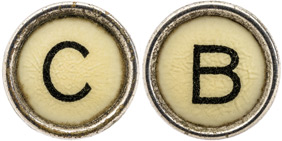Charles Barber is a nonfiction author of five books, including In the Blood: How Two Outsiders Solved a Centuries Old Medical Mystery and Took on the U.S. Army, released by Grand Central Publishing on May 30, 2023, the “high-stakes” true story of how an absent-minded inventor and a down-on-his-luck salesman joined forces to create a once‑in‑a‑generation lifesaving medical product that saved lives on the battlefield. Robert Kolker, the #1 New York Times bestselling author of Hidden Valley Road said about In the Blood: “Medical miracles don’t happen overnight, and Charles Barber’s suspenseful storytelling helps us see and feel the struggle and frustration, the sweat and tears. The result is inspiring.”
He has been Writer in Residence at Wesleyan University since 2016 and is also a Lecturer in Psychiatry at the Yale School of Medicine. All of his previous four books, each in their own way, have addressed the central theme of his work, which is the power of the “underdog,” or more specifically how outsiders use persistence, resolve and pluck to change the world.
Barber grew up in Connecticut, where his father was an economics professor, also at Wesleyan. Barber attended Harvard University, where he studied with and was greatly influenced by psychiatrist and writer Robert Coles. While in college, he worked as an assistant for writers Paul Horgan and William Manchester. He earned his MFA at Columbia University in 1993.
He later worked for ten years with homeless mentally ill individuals in New York City during and after his tenure at Columbia, including at the Bellevue Men’s Shelter. Then Barber became a researcher in the Yale psychiatry department as a researcher and at criminal justice programs in Connecticut, including consulting for the Connecticut Department of Correction.
In 2005, Barber published Songs from the Black Chair: A Memoir of Mental Interiors, an account of his work with the homeless and the story of his own experiences with obsessive-compulsive disorder. The New England Journal of Medicine compared the book to William Styron’s Darkness Visible and Sylvia Nasar’s A Beautiful Mind. The title essay of Songs from the Black Chair won a 2006 Pushcart Prize, and excerpts from the book appeared in the New York Times and on National Public Radio.
Barber’s book Comfortably Numb: How Psychiatry is Medicating a Nation, published by Random House in 2008, is a critique of the over-use of psychiatric medications to treat and medicate everyday life problems. Comfortably Numb was a Barnes and Noble “Discover Great New Writers” selection and was called “a blockbuster” by Library Journal. Barber wrote pieces relating to Comfortably Numb in the Washington Post, Scientific American, and The Nation, and appeared on CNN, The Morning Show, and Fresh Air.
His 2019 book Citizen Outlaw: One Man’s Journey from Gang Leader to Peacekeeper, about reformed New Haven gangster William Outlaw was released by HarperCollins. Barber and Outlaw appeared on The Today Show and on C-SPAN’s Book TV. The New Yorker wrote of Citizen Outlaw: “A fine book about a New Haven gang leader turned gang-outreach officer who, by talking down revenge-minded young men, manages to interrupt the cycle of retaliation.” Kirkus described the book as an “[An] inspirational story of a criminal whose self-reform has brought peace both to him and his city.”
In 2022, Barber published Peace & Health: How a group of small-town activists and college students set out to change healthcare, about the fifty-year history of Connecticut’s Community Health Center and its founder Mark Masselli, who created the center, now one of the country’s health centers for the underserved, at age 20 as a college dropout. Publishers Weekly called the book “Excellent…a rousing story of citizen disruption centered on the [visionary] Community Health Center … A reader interested in the history of free clinics, or health care in general, will find Peace & Health fascinating and inspiring.”
At Yale, Charles is Editor-in-Chief of The Perch, a creative arts journal with a mental health theme. At Wesleyan, he teaches courses on memoir, nonfiction writing, and writing about social issues. He has lectured across the country at universities, medical schools, and behavioral health and criminal justice organizations.
He and his family live in the house that he grew up in. Charles spends much of his days with the family’s two dogs, does his best writing at Dunkin Donuts, likes to swim outside in the winter, and studies the highs and lows of the New York Jets and New York Knicks with a strange and obsessive particularity.

